- Home
- Lynne Reid Banks
The Mystery of the Cupboard
The Mystery of the Cupboard Read online
For my family.
Contents
Cover
Title Page
1. The Longhouse
2. Kitsa Goes Missing
3. Hidden in the Thatch
4. Jessica Charlotte’s Notebook
5. Family Stuff
6. Pouring the Lead
7. The Day of the Parade
8. The Old Bottle
9. Frederick
10. Patrick
11. Tom
12. Jenny
13. The Fall
14. The Cupboard
15. In the Cashbox
16. The Jewel Case
17. A Sudden Emergency
18. The Sleeping Lady
19. Maria’s Bequest
Epilogue: A Funeral – and After
About the Author
Also by the Author
Copyright
About the Publisher
1
The Longhouse
“But Mum, I don’t want to move house again!”
Omri’s mother stared at him with her mouth slightly ajar. She turned away for a moment as if she simply couldn’t think of a thing to say, and then swiftly turned back.
“Omri, you know what, you’re incredible. Ever since we moved here you’ve done nothing but moan. You hated the district, you hated the street, you hated the house—”
“I never said I hated the house! I like the house. I love the garden. Anyway, even if I did hate it, I wouldn’t want to move. All that packing and general hassle last time, it was awful! Why do we have to move again?”
“Listen, darling. You remember the freak storm?”
Omri stared at her. Remember it? Could anyone who’d survived it possibly ever forget it?
“Stupid me, of course you do, I only meant— well, it wrecked the greenhouse—”
“It wrecked my room—”
“The chimney fell off, the roof had to be—”
“But Mum, that was all months ago. It’s all been mended, pretty well.”
“At vast cost,” put in his father, who was sitting at the breakfast-room table writing out a description of their house. It was coming home unexpectedly early and catching his father on the phone to an estate agent that had tipped Omri off that his parents were thinking about selling and moving.
“Yes, and now with a new roof and everything, it’s a good time to sell. Besides, Dad really hates living in town.”
Now it was Omri’s turn to have his mouth hanging open.
“You mean we’re not going to live in London?”
“No. We’re going to live in the country.”
Omri sat up sharply. “The country!” he almost shouted, as dismayed as if his father had announced they were going to live at the bottom of the sea.
“Yes, dear, the country,” said his mother. “That big green place with all the trees - you know, you’ve seen it through the car window when we’ve been racing from one hideous town to another.”
Omri ignored her sarcasm. “Would it be Kent?” His best friend, Patrick, lived in Kent.
“No.”
That put the lid on any thoughts that it might not be so bad.
“But - but - are we just moving because of Dad?”
“Certainly not,” his father said promptly. “We’re also moving because the local high school, which your brothers already go to and which you will, in theory, be starting at in September, is a sink. It’s enough that two of my sons come home two days out of five looking as if they’ve fallen under a bus. It’s enough that Gillon’s marks are in steady decline. I’m not going to compound my mistake by sending you there too.”
But Omri had stopped listening and was halfway to the door.
“Do Adiel and Gillon know?”
“We were going to have a family conference tonight after supper. Only you wrung it out of me,” said his father. “And you don’t have to go telling them straight away—”
But Omri was already charging up the stairs. At the top he burst into the first room he came to, which was Gillon’s.
“We’re going to live in the country!” he exploded.
Gillon, who had jumped up guiltily from his bed (where he’d been lying reading a magazine instead of doing homework) because he thought it was a parent, slumped back again and stared at Omri, stunned.
“The country!” he repeated in exactly the same tone as Omri had used. “We can’t be! What’ll we do there? There’s nothing to do in the country, we’ll be bored out of our minds!”
But Omri had already vanished and was beating on Adiel’s door. Adiel really was doing homework, and had locked his door to keep out intruders.
“Get lost!” he yelled from his desk.
“Ad, listen! Dad’s just told me. We’re going to live in the country!”
There was a pause, then the bolt was drawn, the door opened, and Adiel’s face appeared. He stared at Omri in silence for a few seconds.
“Good,” he said maddeningly, and shut the door in his face.
“Are you crazy?” Omri called through the door. Gillon had come out and was standing next to him.
“He said ‘good’!” Omri told him indignantly.
“Ask him if he’s crazy.”
“I just have!”
“Are you crazy?” Gillon shouted at the top of his voice through the door.
“Boys, stop that row, that’s enough! Come down and we’ll talk about it!” came their father’s irritated voice from the foot of the stairs.
Omri and Gillon trailed down and back into the breakfast room. After a few minutes, Adiel, looking studiedly unconcerned, joined them.
“Now then. Listen first, then blow your tops, okay? This house, due to a fluke in the housing market, is suddenly worth a lot of money.”
“How much?” said Gillon, for whom money was the most important thing in life.
“A lot more than we paid for it. Just because it’s in London and lots of people, whom I can only regard as totally insane, want to live in London.”
“And at the precise moment when we were thinking of selling anyway,” put in their mother eagerly, “something really wonderful has happened. I’ve inherited a lovely house.”
“Inherited? Does that mean we get it for nothing?”
“Yes! Isn’t it incredible?”
“But what’s it like? Have you seen it?”
“Well, er - no, not yet. But it sounds beautiful. Not as big as this one—”
“WHAT!” all the boys - even Adiel - yelled in chorus.
“But that won’t matter,” put in their father quickly, “because we will not be surrounded on all sides by this stinking, overcrowded, crime-ridden city where you can’t snatch a breath of clean air or walk ten yards without being mugged—”
“Lionel, there’s no need to exaggerate, none of us has ever been mugged—”
“—Or at least tripping over litter, and we will live in peace and safety and beauty, in a much nicer, if somewhat smaller, house with much more land, and we’ll have a better life. Now what on this polluted earth, may I ask, is wrong with that?”
Silence. Then Adiel said, “Sounds okay to me. Only where would we go to school?”
Their father and mother gave each other a little married look. Their father cleared his throat and said, “Well. What would you say to boarding?”
He was looking only at Adiel when he said it, and Adiel didn’t flinch. But Gillon gave a great screech and fell off his chair onto the floor, where he lay spread-eagled and twitching.
“Oh, get up,” said his mother, hauling on one arm. “You clown. He didn’t mean you.”
Gillon sat up sharply.
“He didn’t? Why not? Aren’t I good enough to
go to boarding school?”
“No,” said Adiel. “At boarding school you’re not only expected to work, you have to keep your room tidy. You’d be kicked out in a week.”
Gillon uttered a short word under his breath and slumped back onto the floor. From there he said, “I suppose we couldn’t have a dog.”
“A dog!” exclaimed Omri. “What about Kitsa?” Kitsa was his cat.
“It would eat her,” said Gillon cheerfully. “Bit of a laugh, eh?” He sat up again. “It’d be good, we might get a rottweiler and then it would eat you, too.”
“What we might actually get,” remarked their mother, “is a pony.”
The boys all looked at one another in bewilderment. None of them had ever shown the faintest interest in riding. Only for Omri did the idea of a horse have any associations. But they were very pleasant ones.
He said slowly, “That might be all right. I wouldn’t mind that.”
“Are you crazy? You’ve never even sat on a horse!” said Gillon.
“I’d like to, though,” said Omri.
His vision of ‘the country’ as a barren wilderness devoid of all entertainment blurred a little, and out of the mist rode a familiar figure: an American Indian, seated astride a strong, alert brown pony, with his hand raised in stern greeting. He cocked one buckskin-clad leg over the pony’s neck and slid to the ground, where he stood knee-deep in lush English grass. What was odd was, in Omri’s vision, he was the same size as Omri - well, bigger, obviously, because he was a man. The odd thing about this was that Omri had only ever seen him small. But often in Omri’s night- and day- dreams, he appeared full size.
Now, in the daydream, the Indian made a stirrup of both hands and gestured with his head. Without hesitating, Omri ran up to him, put his left foot in the hands and felt himself lifted. A moment later he was on the pony’s warm back.
It felt terrific. He looked down at the Indian - his friend - and the Indian narrowed his black eyes at him approvingly and gestured with both fists. Omri understood him instantly and echoed that squeezing movement with his legs. The pony started forward…
“What are you grinning at?” asked Adiel, who was watching him. “You’ve got your loopy look.”
Omri hastily banished Little Bull from his mind and rearranged his face into solemn lines. “Nothing, I was just thinking. And where would me and Gillon go to school?”
“Gillon and I,” corrected his father between his teeth for the three thousandth time. “Locally. We’re looking into it now.”
“It’ll be some tinny little country school with eight pupils,” said Gillon.
“Oh, come on, boys, cheer up. It won’t happen till the summer at the very earliest. And meanwhile there’s all the fun of going to see our new place. We’re going this weekend.”
“Is it by the sea?”
“Not far — about six miles.”
Gillon scrambled up. His eyes were on Omri. In them, Omri discerned a brotherly signal: might not be so bad, what d’you think? Omri gave an almost imperceptible nod. His heart felt suddenly, unaccountably light.
*
Visiting the new house was quite a lot of fun, apart from the long car journey, which was obviously hard to take, especially as their parents had recently gone on a health kick and flatly refused to take them to motorway service stops where they insisted you could only buy junk food. They had to wait till they were off the motorway, by which time the pubs had stopped serving lunch and the next meal would be tea. However, by the time they found a tea place they were all so hungry that health was forgotten and they stuffed themselves with tea cakes and scones and thick cream and strawberry jam and flapjacks till they nearly burst. They might as well have had the hamburger-and-chips meal in the first place.
On the way again, Omri asked, “Who did you inherit this house from?”
“Some cousin I never knew existed. An old, old man who died recently without leaving a will. It seems I’m his nearest relative. The lawyers contacted me and said I was to have the house. Bit of luck, eh?”
“Let’s wait till we’ve seen it,” said Gillon, never one to see the bright side until he was forced to.
The house was outside a village in deepest Dorset. It took four hours to get there, and find it. After passing through a mysterious dark tunnel they drew up at last beside a big gate in a lane. There was no sign of the house, which was screened from the road by a high hedge of mixed wild trees and shrubs, not like London hedges, which tended all to be made of the same thing.
They entered through another gate, a small one, and went up a path. The first thing that struck them was how incredibly different it all was from London. The boys could hardly grasp the fact that they were actually going to live in a place like this, surrounded by open countryside, with no other houses in sight. They felt weird about it, as if they were on another planet.
The details in the lawyers’ letter had talked about ‘an acre of land, outbuildings, a paddock, and a small wood running down to a river that borders the property’. They stood on the overgrown lawn and stared round them in wonderment. In the distance were rounded hills, some with trees crowning them, and nearer were sloping fields. It was indeed ‘a big green place with lots of trees’.
“We’re in the Hidden Valley,” murmured their mother. “Isn’t it absolutely magical?”
“How much of all this is ours?” asked Gillon.
“Just this bit, stupid,” said Adiel. “Up to the fence.”
“No,” said their mother, consulting a sort of map the lawyers had sent. “More than that. That big field is ours — that’s the paddock. Down to those trees down there. That’s the river. And there’s more across the lane.”
“More?” The garden at home, which they had considered vast, dwindled by comparison to tablecloth-size.
Their mother led them across the lane to the big gate. Beyond it was a yard with buildings on three sides. One was a big workshop, and their father headed for that like an arrow. Another was three open bays under a corrugated iron roof. A third looked like an old barn and had several doors.
“That’s the pigsty and stable,” their mother said. “Long disused. And a couple of rooms for feed and stuff. And somewhere there are henhouses.”
“Long disused, too, I suppose,” said Adiel.
“No, as a matter of fact, there are hens. Some old party from the village has been coming in to look after them occasionally and collect the eggs. It should be round the back there somewhere.”
The boys belted round behind the pigsty and found about a dozen hens, one of them with five tiny chicks running around squeaking. There was a handsome cockerel, too, who obliged with a regal crow as soon as they appeared.
“Hey, check this out, Dad!” called Adiel, bending over a long box. “Fresh eggs!” He emerged holding two in each hand.
“And fresh chicken!” said Gillon.
“If you can kill them,” said their mother.
“Anyone would kill a chicken to get a roast one,” said Gillon, who’d never killed anything in his life.
“Well, never mind the livestock now. Let’s go and look over the house!” said their mother excitedly. “My very own house! I can’t wait!”
The two-storey house was made of stone, with a thatched roof. It was a funny shape, long and thin, with a sort of bend or wave in the middle.
“It’s a real Dorset longhouse!” enthused their father.
“A longhouse!” Omri almost shouted.
They all looked at him curiously.
“Yes… That’s what these long one-room-deep stone houses are called around here.”
The rooms were fairly small, but there were eight main ones altogether — four bedrooms in a row above four little linked living rooms. No corridors. Two flights of stairs, one at each end, so the two middle bedrooms led off the two outer ones. The bathroom had been added in modern times, built out at the back over the kitchen. From every window there were beautiful views.
The garden was negl
ected and the thatched roof gave Omri’s father pause.
“It’s all very well,” he said, while they all rushed about getting enthusiastic. “I love the place, it’s perfect, that workshop! My dream of a studio! But have you any idea what it costs to rethatch a thatched roof? And we’d have to, almost right away. Look, it’s rotten.” He reached out through one of the tiny windows upstairs and pulled a handful of thatch out of the deep eaves. It was black with age and damp and it had a musty smell.
From below, Omri called in an odd tone, “Come and see this!”
The others went outside and round to the gable end of the house, nearest the road. Up under the sloping thatch was a plaque, inset into the stone. It was engraved in very worn old-fashioned writing. Omri couldn’t read it, but their mother, with difficulty, made it out:
Blessed the man
who fearing God
buildeth for
posterity. LB. 1704
When she’d finished reading, they all stood for a moment. Then Gillon said, “What’s posterity?”
“It means your bottom,” said Adiel.
The older two burst out laughing. Only Omri didn’t — he wasn’t listening.
“Don’t be fatuous, boys,” said their father. “Not ‘posterior’! ‘For posterity’ means ‘for those who’ll come after you’.”
Gillon and Adiel were still choking down their mirth when Omri said quietly, “We’re definitely going to like living here.” They all looked at him.
“How do you know?” said Gillon with a bit of jeer in his voice.
“It’s a longhouse,” said Omri mysteriously. ‘And - LB.”
“What?”
“Someone with the initials LB built this house.”
“Big deal. So what?”
“LBs are lucky for me,” said Omri quietly.
2
Kitsa Goes Missing
They moved in in August.
It hadn’t been so hard, after all, to leave the old house in Hovel Road. Omri had secretly been quite glad to, in the end. After all, his room had been totally wrecked by the Big Storm. For months he’d slept on a mattress on the floor, and done his homework at an ordinary old table, and thought about all his things that the storm had demolished or blown away. His market-bought chest had been destroyed, along with his Japanese table, his desk, his collections, and all his other stuff, his links with childhood. It was time for a new start.

 Two Is Lonely
Two Is Lonely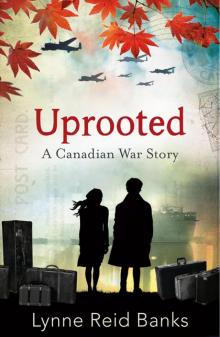 Uprooted - a Canadian War Story
Uprooted - a Canadian War Story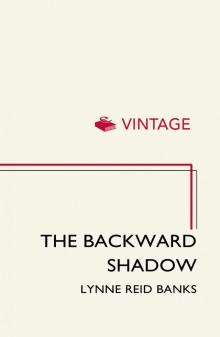 The Backward Shadow
The Backward Shadow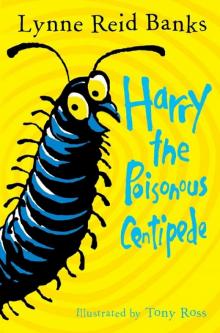 Harry the Poisonous Centipede: A Story to Make You Squirm
Harry the Poisonous Centipede: A Story to Make You Squirm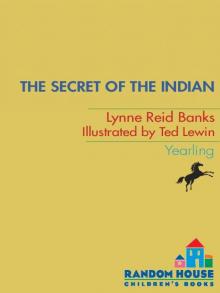 The Secret of the Indian (The Indian in the Cupboard)
The Secret of the Indian (The Indian in the Cupboard)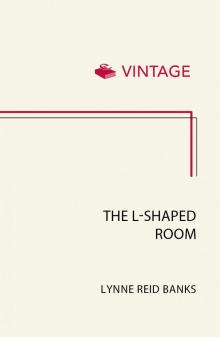 The L-Shaped Room
The L-Shaped Room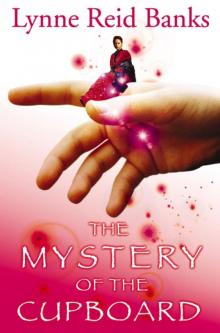 The Mystery of the Cupboard
The Mystery of the Cupboard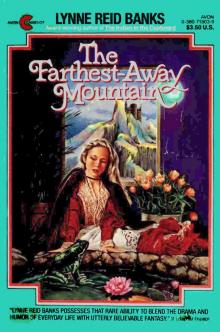 The Farthest-Away Mountain
The Farthest-Away Mountain Harry the Poisonous Centipede Goes to Sea
Harry the Poisonous Centipede Goes to Sea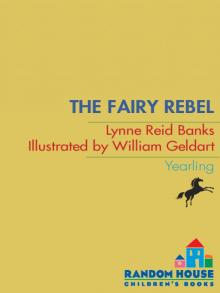 The Fairy Rebel
The Fairy Rebel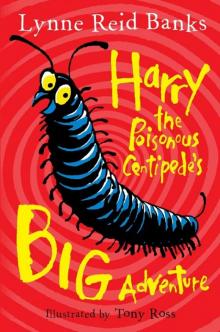 Harry the Poisonous Centipede's Big Adventure: Another Story to Make You Squirm
Harry the Poisonous Centipede's Big Adventure: Another Story to Make You Squirm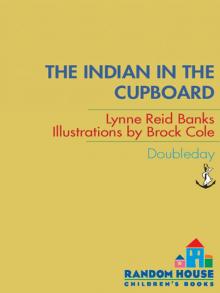 The Indian in the Cupboard
The Indian in the Cupboard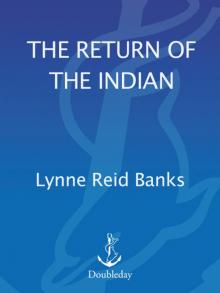 The Return of the Indian
The Return of the Indian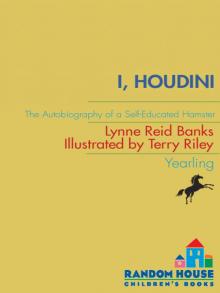 I, Houdini
I, Houdini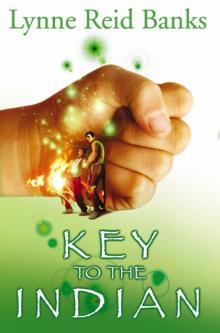 The Key to the Indian
The Key to the Indian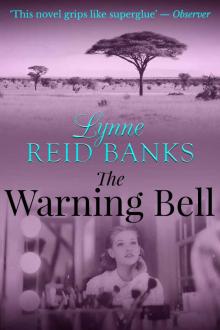 The Warning Bell
The Warning Bell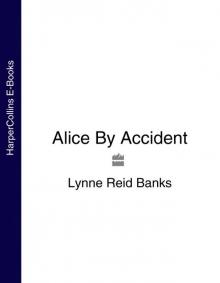 Alice by Accident
Alice by Accident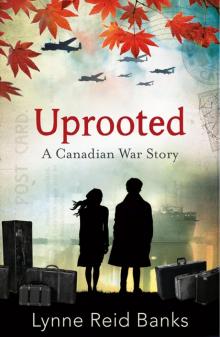 Uprooted
Uprooted Writing On the Wall
Writing On the Wall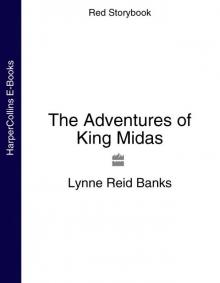 The Adventures of King Midas (Red Storybook)
The Adventures of King Midas (Red Storybook)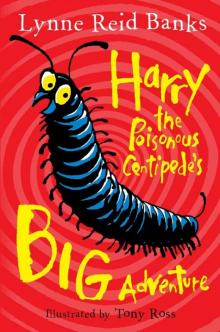 Harry the Poisonous Centipede's Big Adventure
Harry the Poisonous Centipede's Big Adventure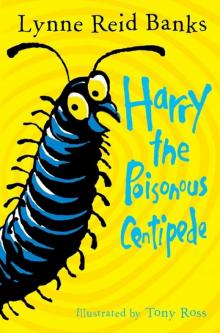 Harry the Poisonous Centipede
Harry the Poisonous Centipede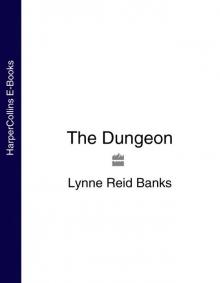 The Dungeon
The Dungeon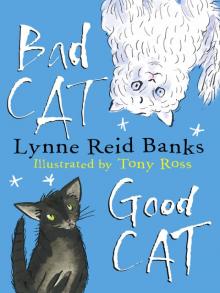 Bad Cat, Good Cat
Bad Cat, Good Cat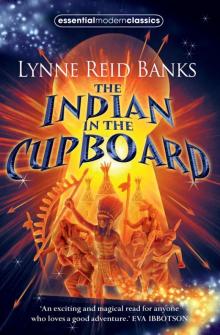 The Indian in the Cupboard (Essential Modern Classics, Book 1)
The Indian in the Cupboard (Essential Modern Classics, Book 1)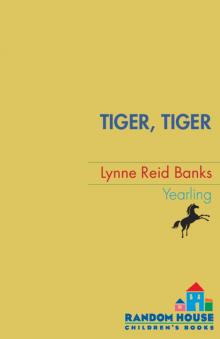 Tiger, Tiger
Tiger, Tiger